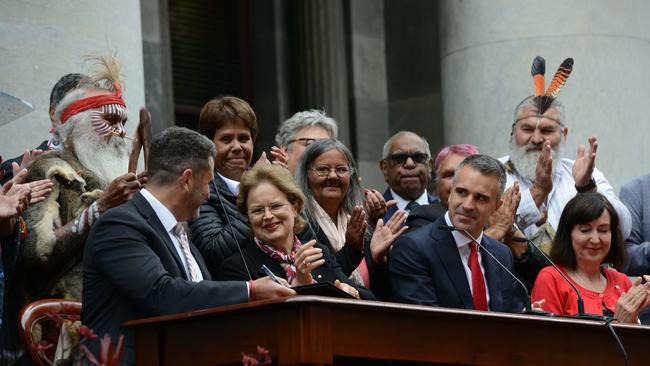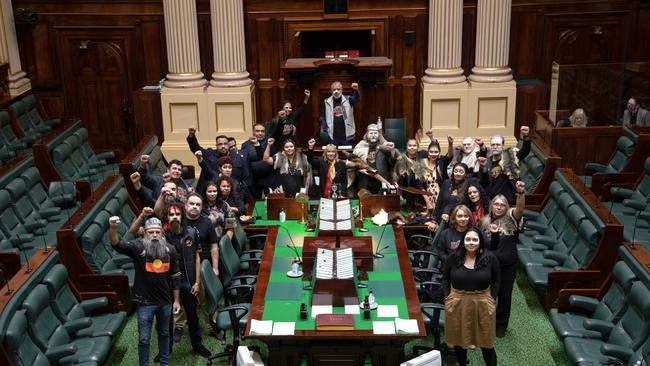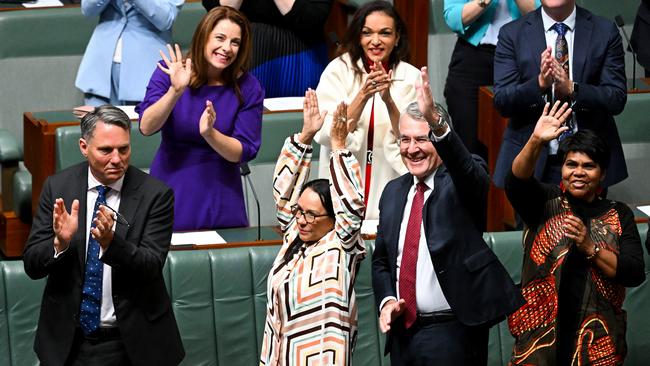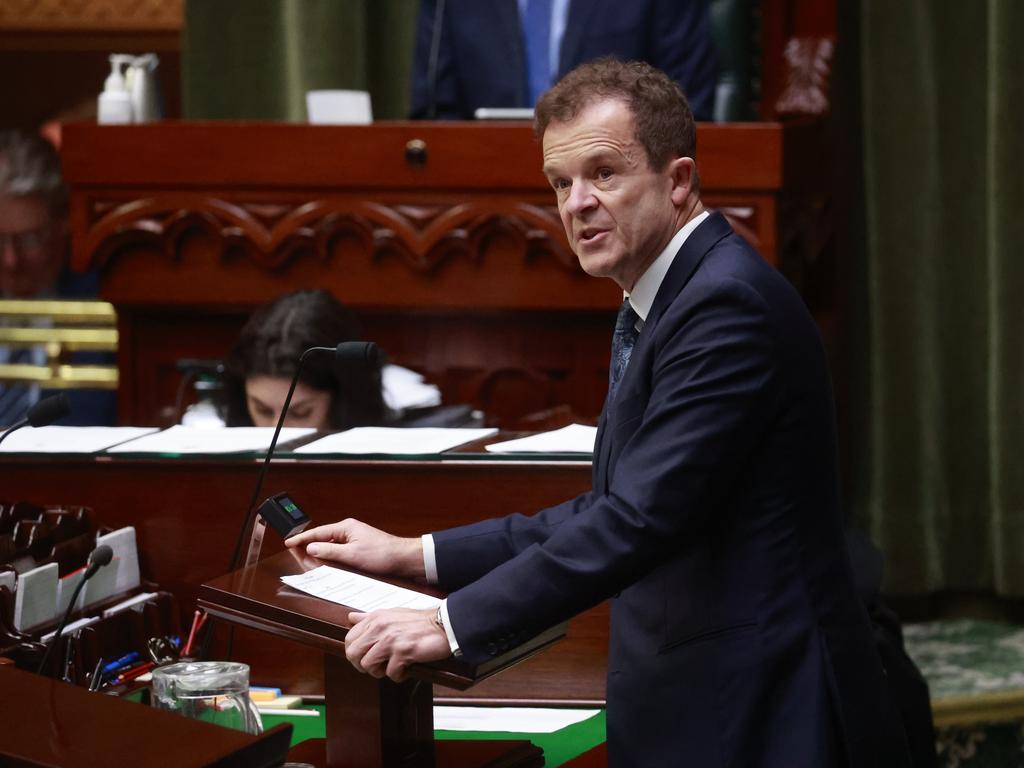Australian states lead way on Indigenous treaty, an Indigenous voice to parliament and reconciliation

South Australia has introduced its own voice to parliament, and a willingness to talk treaty has emerged Australia-wide. This historic shift marks the first comprehensive treaty negotiations on this continent since British settlement in 1788. It promises profound economic, social and political change for Indigenous peoples of a kind not before seen in Australia.
When the British arrived in Australia, New Zealand and North America, they took the land by force or agreement, or a combination of both. Agreements reached through negotiation to settle outstanding claims were known as treaties.

The aspiration was to recognise the existence and sovereignty of first peoples and set down terms for peaceful coexistence. The alternative, as in Australia, was to leave differences over land, political recognition and reparations unresolved.
In North America, treaties extend as far back as the 1600s, while in New Zealand the Treaty of Waitangi was signed in 1840 between the British Crown and more than 500 Maori chiefs. There are hundreds of such treaties, which are sometimes expressed to last in perpetuity or, as one North American treaty states, for “as long as the rivers run and grass shall grow”.
The old treaties very often failed to deliver on their promise. This might reflect the unequal bargaining power of the parties or that the words of the agreement were not backed by good intentions. Colonisers frequently signed treaties only to ignore them and the duties they owed to first peoples once they had acquired their land. These agreements laid a foundation for poverty and disempowerment by removing indigenous peoples from ancestral homes and livelihood.
The failure of these old treaties informs modern treaty-making processes.
Canada is a good example, with 26 modern treaties entered since 1973 that cover areas of the nation stretching from British Columbia and Yukon in the west to the Arctic in the far northeast.
One 25-year process led to the Nisga’a Final Agreement with a cash settlement of $C190m and the Nisga’a Lisims government assuming ownership of more than 1900 square kilometres of land and entitlements to fish stocks and wildlife harvests. A different process created the new self-governing Territory of Nunavut (meaning “our land” in Inuktitut) in the far north of Canada covering an area larger than Queensland.
Modern treaties are backed by legally enforceable obligations and represent a genuine settling of claims. They provide indigenous communities with new economic capacity that can enable their people to thrive while preserving culture and heritage.
Australia’s states and territories are looking to this modern model in pursuing their own talks as a precursor to any national treaty process.
Remarkably, every Australian state and territory except Western Australia has committed to a comprehensive treaty process with their state’s Indigenous peoples. This extends across both sides of politics, ranging from Tasmania’s Liberal government through to the Labor government in Queensland.
Both sides of politics have recognised the necessity of coming to the table to negotiate a just settlement with their first peoples. Although Western Australia has not begun comprehensive treaty negotiations, it signed Australia’s first treaty with its Noongar people. This was achieved under Liberal premier Colin Barnett in 2015.
In exchange for surrendering native title rights and releasing the state from liability for past extinguishment of native title, the Noongar people received a $1.3bn package. This includes rights, obligations and opportunities relating to land, resources, governance, finance and cultural heritage, and recognises the Noongar people as the traditional owners of the southwest region of Western Australia. The state parliament also enacted the Noongar (Koorah, Nitja, Boordahwan) (Past, Present, Future) Recognition Act, the first legislation to include the Noongar language.
Treaty processes in other states and territories will take years, and in some cases decades, to resolve. In extending beyond the life of any government, these processes are fraught with political risk and the possibility of federal intervention.

In South Australia, the treaty process began under Labor in 2016 but was abandoned when the government lost office in 2018. Talks restarted when Labor returned to office in 2022. NSW is the most recent state to commit to treaty talks, with the incoming Minn’s government committing $5m to the process.
State and territory treaty processes will be a major challenge for all concerned but have the potential to transform the relationship between governments and our First Peoples over the coming generation. Even the fact that governments are talking treaty with Indigenous peoples for the first time in more than 200 years is highly significant. The hope is that this will lay a foundation to finally settle outstanding claims and enable prosperity for our First Peoples and a more just coexistence.
George Williams is a deputy vice-chancellor and Professor of Law at the University of NSW






While the Indigenous voice to parliament referendum is capturing national attention, the states and territories are moving more quietly to recognise Indigenous peoples and redress past injustices.